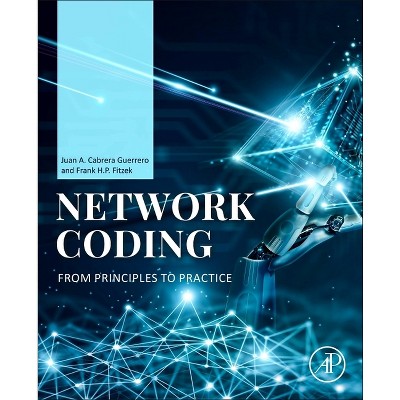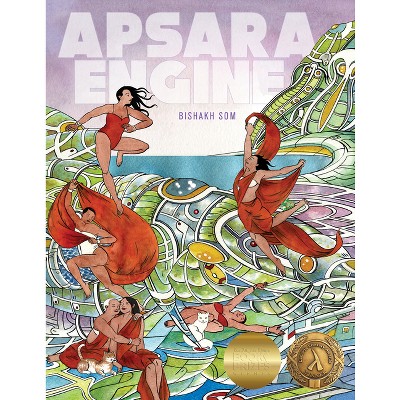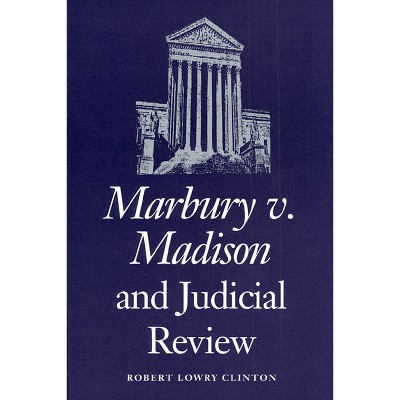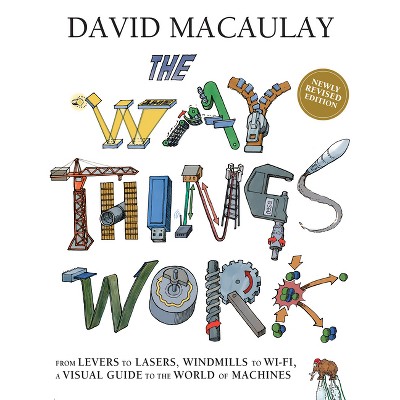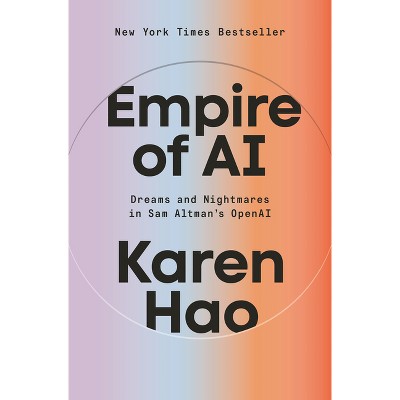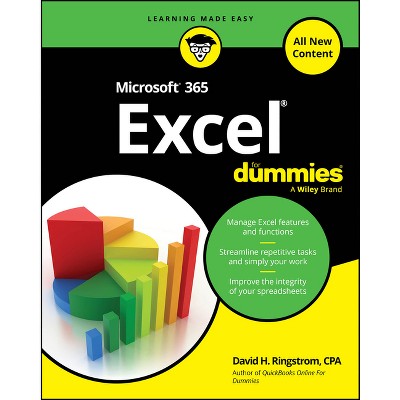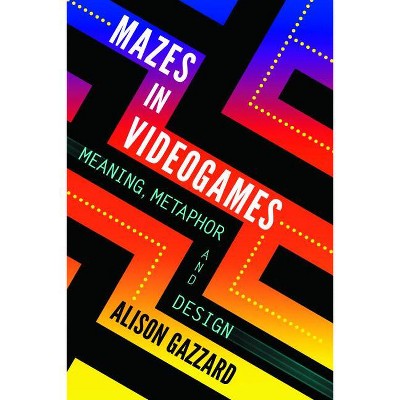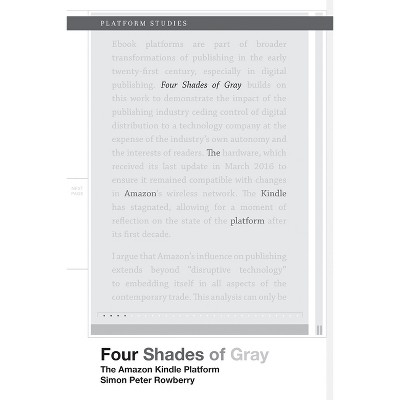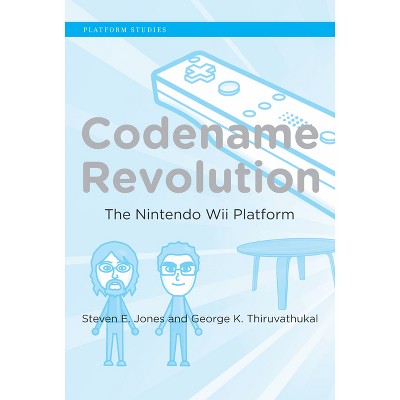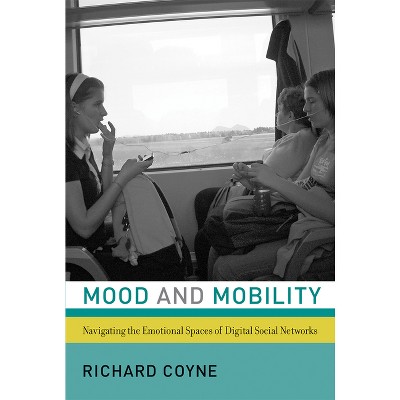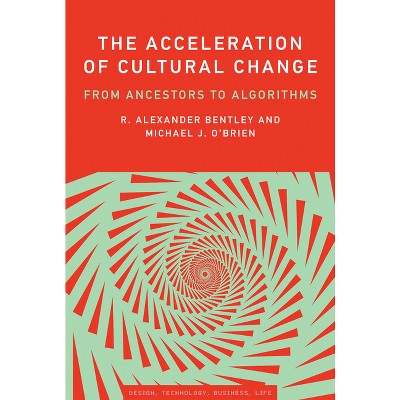Sponsored

Now the Chips Are Down - (Platform Studies) by Alison Gazzard (Paperback)
$40.00
In Stock
Eligible for registries and wish lists
Sponsored
About this item
Highlights
- The story of a pioneering microcomputer: its beginnings as part of a national Computer Literary Project, its innovative hardware, and its creative uses.
- About the Author: Alison Gazzard is a Lecturer in Media Arts and Education at the UCL Institute of Education at University College London.
- 224 Pages
- Computers + Internet, History
- Series Name: Platform Studies
Description
About the Book
"The story of a pioneering microcomputer: its beginnings as part of a national Computer Literary Project, its innovative hardware, and its creative uses. In 1982, the British Broadcasting Corporation launched its Computer Literacy Project, intended "to introduce interested adults to the world of computers and computing." The BBC accompanied this initiative with television programs, courses, books, and software--an early experiment in multi-platform education. The BBC, along with Acorn Computers, also introduced the BBC Microcomputer, which would be at the forefront of the campaign. The BBC Micro was designed to meet the needs of users in homes and schools, to demystify computing, and to counter the general pessimism among the media in Britain about technology. In this book, Alison Gazzard looks at the BBC Micro, examining the early capabilities of multi-platform content generation and consumption and the multiple literacies this approach enabled--not only in programming and software creation, but also in accessing information across a range of media, and in "do-it-yourself" computing. She links many of these early developments to current new-media practices. Gazzard looks at games developed for the BBC Micro, including Granny's Garden, an educational game for primary schools, and Elite, the seminal space-trading game. She considers the shift in focus from hardware to peripherals, describing the Teletext Adapter as an early model for software distribution and the Domesday Project (which combined texts, video, and still photographs) as a hypermedia-like experience. Gazzard's account shows the BBC Micro not only as a vehicle for various literacies but also as a user-oriented machine that pushed the boundaries of what could be achieved in order to produce something completely new ovided by publisher.Book Synopsis
The story of a pioneering microcomputer: its beginnings as part of a national Computer Literary Project, its innovative hardware, and its creative uses. In 1982, the British Broadcasting Corporation launched its Computer Literacy Project, intended "to introduce interested adults to the world of computers and computing." The BBC accompanied this initiative with television programs, courses, books, and software--an early experiment in multi-platform education. The BBC, along with Acorn Computers, also introduced the BBC Microcomputer, which would be at the forefront of the campaign. The BBC Micro was designed to meet the needs of users in homes and schools, to demystify computing, and to counter the general pessimism among the media in Britain about technology. In this book, Alison Gazzard looks at the BBC Micro, examining the early capabilities of multi-platform content generation and consumption and the multiple literacies this approach enabled--not only in programming and software creation, but also in accessing information across a range of media, and in "do-it-yourself" computing. She links many of these early developments to current new-media practices. Gazzard looks at games developed for the BBC Micro, including Granny's Garden, an educational game for primary schools, and Elite, the seminal space-trading game. She considers the shift in focus from hardware to peripherals, describing the Teletext Adapter as an early model for software distribution and the Domesday Project (which combined texts, video, and still photographs) as a hypermedia-like experience. Gazzard's account shows the BBC Micro not only as a vehicle for various literacies but also as a user-oriented machine that pushed the boundaries of what could be achieved in order to produce something completely new.About the Author
Alison Gazzard is a Lecturer in Media Arts and Education at the UCL Institute of Education at University College London.Dimensions (Overall): 9.0 Inches (H) x 6.0 Inches (W) x .5 Inches (D)
Weight: .72 Pounds
Suggested Age: 22 Years and Up
Series Title: Platform Studies
Sub-Genre: History
Genre: Computers + Internet
Number of Pages: 224
Publisher: MIT Press
Format: Paperback
Author: Alison Gazzard
Language: English
Street Date: May 21, 2024
TCIN: 92968419
UPC: 9780262552028
Item Number (DPCI): 247-44-9376
Origin: Made in the USA or Imported
If the item details aren’t accurate or complete, we want to know about it.
Shipping details
Estimated ship dimensions: 0.5 inches length x 6 inches width x 9 inches height
Estimated ship weight: 0.72 pounds
We regret that this item cannot be shipped to PO Boxes.
This item cannot be shipped to the following locations: American Samoa (see also separate entry under AS), Guam (see also separate entry under GU), Northern Mariana Islands, Puerto Rico (see also separate entry under PR), United States Minor Outlying Islands, Virgin Islands, U.S., APO/FPO
Return details
This item can be returned to any Target store or Target.com.
This item must be returned within 90 days of the date it was purchased in store, shipped, delivered by a Shipt shopper, or made ready for pickup.
See the return policy for complete information.
Frequently bought together

$7.67
MSRP $10.99
Save $5 when you spend $20 on select books
4.6 out of 5 stars with 27 ratings
Trending Computers & Technology Books

$7.99
Save $5 when you spend $20 on select books
5 out of 5 stars with 1 ratings
